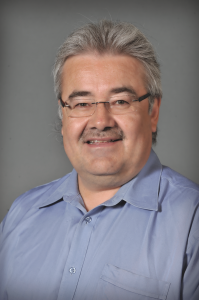The first meeting of the Governance Implementation Committee for a New Regional Government September 19 was history in the making.
Mandated by the Agreement on Governance in Eeyou Istchee James Bay Territory, the committee is responsible for ensuring the regional government is operational by January 1, 2014, and makes a smooth transition from the Municipalité of Baie James (MBJ) political structure.
At stake is control of Category III lands (as defined by the James Bay and Northern Quebec Agreement), which will be jointly overseen by a government made up of 11 Cree representatives and 11 representatives of the Jamesien communities.
Bill Namagoose, executive director of the Grand Council of the Crees (GCC) said this is all new, as a regional government didn’t exist in the past. “It was all separate,” he said. “The Quebec government gave the mayors entire jurisdiction on Category III lands 10 years ago. The new agreement we have now reversed that, so the Crees will be participants.”
The government is split 50/50 between Crees and Jamesiens and will remain so for the first 10 years, after which time it will review demographics and democratically implement any changes to better reflect the population of the territory. That could mean greater Cree control in the future.
“The Cree population has been increasing, whereas the Jamesien population is going down, according to the latest statistics,” said Namagoose. “But that could change.”
Namagoose said that this isn’t just a bureaucratic shuffle: these changes will eventually mean big things to the average person in Eeyou Istchee.
“They have a voice in how the territory is going to be managed now,” he said. “Before they didn’t – it was totally up to MBJ. There’ll be no more bylaws that interfere with Crees’ hunting rights, no more bylaws prescribing what kind of traditional structures we can build.”
Critical changes will take place in the area of land use, Namagoose emphasized. The new government will prepare a land-use plan to submit to the province in order to prevent conflict between traditional and contemporary uses of the land.
“Crees will be part of the decision-making process now,” he said. “We will be notified now of any mining claims. We weren’t before. The Quebec government has undertaken to send a list of mining claims to the Cree.”
Namagoose pointed out that the new powers of the regional government will be far more effective than the current “duty to consult” stipulations covering industrial development on Category III lands.
“The duty to consult is kind of hollow. We don’t have any powers or jurisdiction or say in anything,” he said. “Duty to consult sometimes just means a phone call – then you’ve been consulted. It’s not as strong as people think.”
The goal of the GCC, he said, is to expand engagement in processes beyond simple consultation.
“Engagement is much stronger than consultation,” said Namagoose. “Any nation, that’s what they want. Consultation is good, but it’s not good when you don’t have engagement. That’s what the land-use plans are about – the planning documents that Crees will be making over decades, even the next 100 years.”
There will be a two-day information session in Val-d’Or about the new government October 30-31. It will also be live-streamed for those unable to attend in person.
“We’ve invited chiefs and councils and their staffs and other people who are interested in [learning more about] the agreements we’ve signed with Canada and Quebec. We signed the Paix des Braves 10 years ago, and some of the people in office now were not around when the agreement came into place. They have to make decisions to do with the Paix des Braves [and other agreements], so they want to make sure they’re briefed on what it’s all about.”
However, Namagoose said what the new regional government is about is expanded influence over the lands the Eeyouch have lived on for thousands of years.
“We will be part of the planning of the territory,” he said. “We have Cree presence, and we’re bringing our political power. Then we’ll exercise the powers that are defined in the legislation. We’re part of the government: that gives you a lot.


